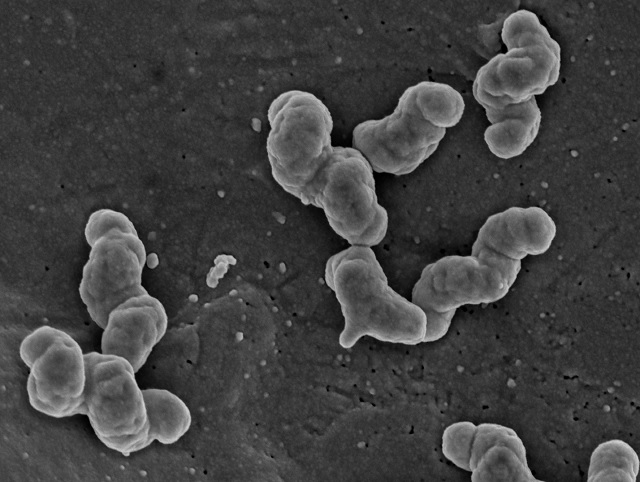Sep 2 2014
 An electron microscopy image showing Nitrospira cells at 70,000x magnification.
An electron microscopy image showing Nitrospira cells at 70,000x magnification.
Nitrite-oxidising bacteria play a major role in the Earth’s natural nitrogen cycle and man-made wastewater treatment plants. For many years, it was believed that these nitrite-oxidising bacteria use only nitrite as their main source of energy. Now, researchers at the University of Vienna have demonstrated that these specialist bacteria may also use an alternative source of energy, such as hydrogen.
When hydrogen is oxidised with oxygen, it promotes the growth of bacteria even in the absence of nitrite. Nitrite-oxidizing bacteria are capable of changing the harmful nitrite into a less toxic nitrate, which not only serves as a nitrogen source for plants but also acts as a substrate for other microbial processes. These bacteria are part of the genus Nitrospira and are found in rivers, soil, oceans and hot springs.
The growth of these species can be seen in separate bacterial cells with the help of NanoSIMS, a high-resolution ion mass spectrometer. Under high vacuum conditions, this technique extracts tiny particles from single bacterial cells that are later identified by mass spectrometry.
The unique method reveals that Nitrospira cells are capable of integrating carbon dioxide into their biomass. This metabolic activity is associated with proliferation of cells and shows that Nitrospira species use hydrogen as their source of energy for growth. Hydrogen oxidation allows these bacteria to colonise new habitats and also sustains their activity in the absence of nitrogen.
The researchers aim to gain a better understanding of the ecology of these species and their importance in carbon and nitrogen cycles. The study was published in Science.